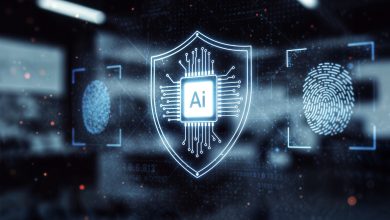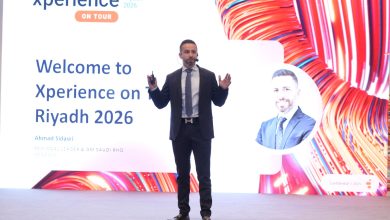Gartner Predicts 40% of Enterprise Apps Will Feature Task-Specific AI Agents by 2026
CIOs Have Three to Six Months to Set Their Agentic AI Strategy and Investments

Dubai – Asdaf News:
Forty percent of enterprise applications will be integrated with task-specific AI agents by 2026, up from less than 5% today, according to Gartner Inc., a business and technology insights company. As organizations accelerate digital transformation, agentic AI in enterprise applications will move beyond individual productivity, setting new standards for teamwork and workflow through smarter human-agent interactions.
Gartner forecasts agentic AI will drive approximately 30% of enterprise application software revenue by 2035, surpassing $450 billion, up from 2% in 2025.
“AI agents are evolving rapidly, progressing from basic assistants embedded in enterprise applications today to task-specific agents by 2026 and ultimately multiagent ecosystems by 2029,” said Anushree Verma, Sr Director Analyst at Gartner. “This shift transforms enterprise applications from tools supporting individual productivity into platforms enabling seamless autonomous collaboration and dynamic workflow orchestration.”
CIOs have a crucial three- to six-month window to define their agentic AI strategy, as the industry is at an inflection point. Organizations that do not embrace agentic AI promptly risk falling behind their peers. Managing strategic priorities requires a focused approach across the five stages of agentic AI evolution.
Stage 1: AI Assistants for Every Application
Gartner predicts that by the end of 2025 almost every enterprise application will have embedded assistants, transforming inefficient apps into intelligent systems that operate on users’ behalf.
AI assistants are the precursor to agentic AI. They simplify tasks and interactions for users but depend on human input and do not operate independently. The most common misconception is referring to these AI assistants as agents, a misunderstanding fueled by widespread “agentwashing.”
“CIOs and technology leaders must focus on creating seamless employee experiences by integrating AI assistants with robust APIs, enabling a shift from traditional application-centric interfaces,” said Verma.
Stage 2: Task-Specific Agent Applications
By 2026, AI assistants will evolve into AI agents with task specialization, a significant step toward true agentic capabilities. Gartner predicts 40% of enterprise applications will be integrated with task-specific agents by 2026, up from less than 5% today.
“As AI agents begin acting independently and handle tasks ranging from routine development to complex incident response without human involvement, leaders must ensure strong security and governance,” said Verma.
Stage 3: Collaborative AI Agents Within an Application
Collaboration among AI agents will redefine enterprise applications as organizations move beyond single-purpose automation. By 2027, Gartner predicts one-third of agentic AI implementations will combine agents with different skills to manage complex tasks within application and data environments.
Today’s AI agents often focus on individual, task-specific functions, which can limit their overall business impact. Collaborative agents will offer more adaptable and scalable solutions by learning from real-time data and adjusting to new conditions. At this stage, technology leaders will need to prioritize standardization and interoperability and adopt protocols that support seamless agent-to-agent communication.
Stage 4: AI Agent Ecosystems Across Applications
By 2028, AI agent ecosystems will enable networks of specialized agents to dynamically collaborate across multiple applications, allowing users to achieve goals without interacting with each application individually.
This shift will drive the need for new business models, greater transparency, dynamic pricing and increased governance to ensure ethical agentic AI operations.
Gartner estimates that by 2028, a third of user experiences will shift from native applications to agentic front ends, requiring new business models to avoid disintermediation.
Stage 5: The “New Normal” for Democratized Enterprise Apps
Gartner predicts that by 2029, at least 50% of knowledge workers will develop new skills to work with, govern and create AI agents on demand for complex tasks.
“As agentic AI matures, standardized protocols and frameworks will enable seamless interoperability, allowing agents to sense their environments, orchestrate projects and support a wide range of business scenarios,” said Verma. “Early adopters will set the standard for the new normal while others risk falling behind as humans begin relying on AI agents as much as their smartphones.”
Gartner clients can read more in the report Emerging Tech: The Future of Agentic AI in Enterprise Applications and Emerging Tech: Maximize Opportunities While Managing Risks of Agentic AI on Enterprise Software.
Learn how to build actionable strategies to align your business, empower your teams, and boost revenue in the age of agentic AI in the complimentary Gartner insights 5 Steps to Seize Agentic AI Opportunity.




